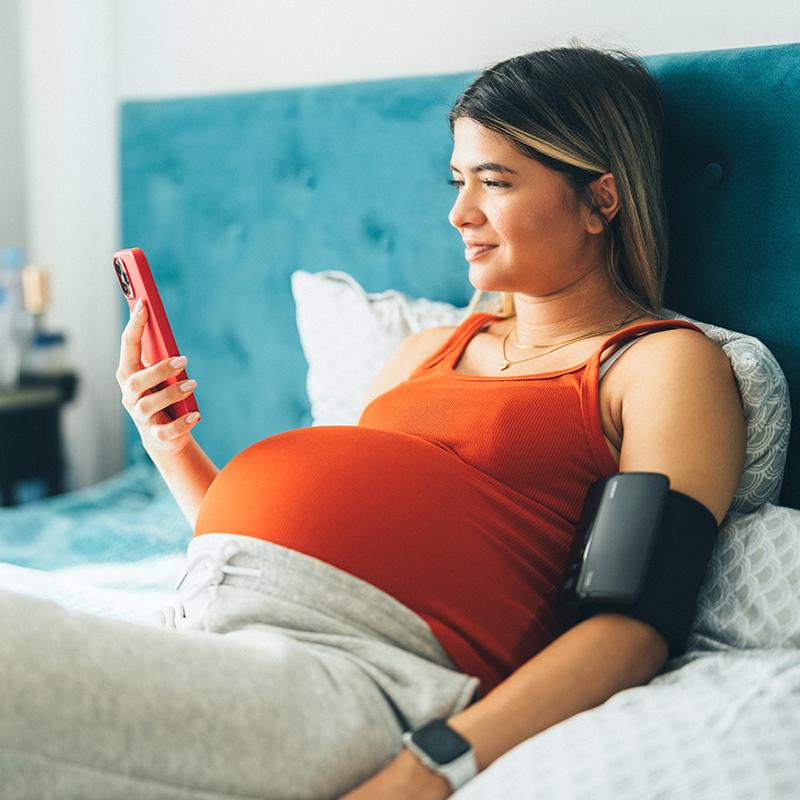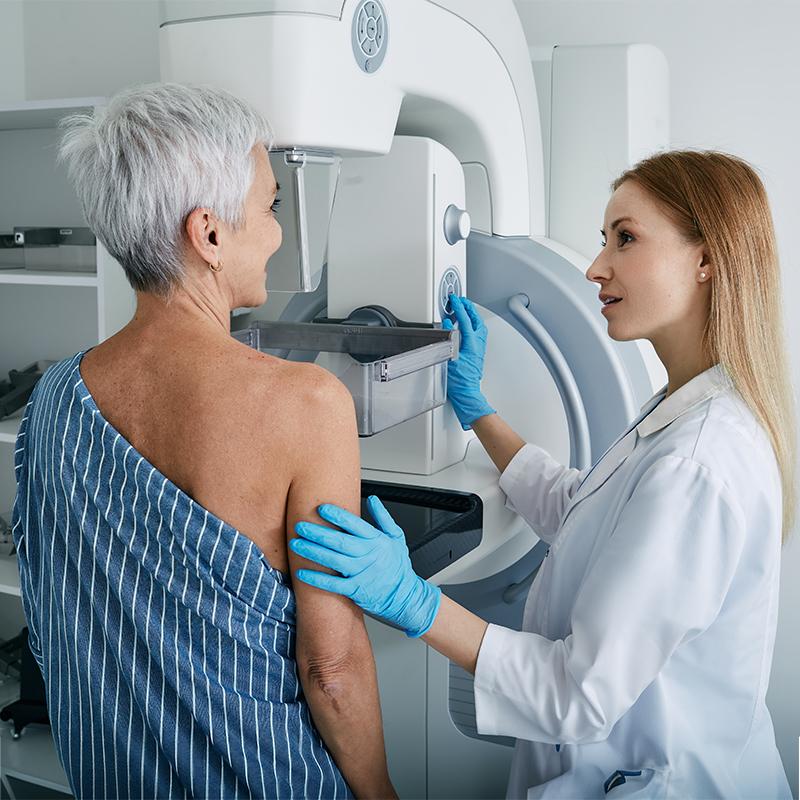
Technologies and touchpoints advancing maternal health equity
CHTI Innovation Accelerator alumni Healing at Home and Heart Safe Motherhood, which leverage text messaging and remote monitoring, are among several Penn Medicine initiatives that promote better health outcomes and reduce disparities in care delivery for parents in the "fourth trimester."

AI-enabled projects chosen for new Innovation Accelerator class
The 2024 Innovation Accelerator Program winners are eyeSITE, which will deploy cameras with AI-enabled image analysis to prevent blindness among diabetic patients, and C3P3, which will use natural language processing to interpret cervical cancer screening reports faster and more accurately. Seven additional teams will receive other forms of support from CHTI.

Prenatal texting program enables providers to focus on patients who need it most
Built using Way to Health, the bidirectional text message platform THEA facilitates home-based blood pressure monitoring and provides educational content to pregnant patients. THEA allowed triage nurses to attend to the small subset of patients (6 percent) with abnormal readings and enabled a new care model that reduced the number of care visits needed.

Liver cancer screening rate doubled with mailed order
Patients with cirrhosis or advanced fibrosis, who are at higher risk of hepatocellular carcinoma (HCC), were twice as likely to complete an HCC screening if they were mailed a letter with a signed ultrasound order compared to being offered a screening only during an office visit. An unconditional $20 incentive in the mailed letter did not change screening rates further.

More mammograms completed with EHR self-scheduling
Mammogram completion rose by 13 percentage points when patients had the ability to self-schedule a screening through the electronic health record portal. The research supports self-scheduling – a low-cost, scalable intervention that reduces friction in care pathways and increases patient autonomy – as a means to improve screening completion rates.